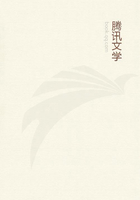MY FIRST quarter at Lowood seemed an age; and not the golden age either; it comprised an irksome struggle with difficulties in habituating myself to new rules and unwonted tasks. The fear of failure in these points harassed me worse than the physical hardships of my lot; though these were no trifles.
During January, February, and part of March, the deep snows, and, after their melting, the almost impassable roads, prevented our stirring beyond the garden walls, except to go to church; but within these limits we had to pass an hour every day in the open air. Our clothing was insufficient to protect us from the severe cold: we had no boots, the snow got into our shoes and melted there: our ungloved hands became numbed and covered with chilblains, as were our feet: I remember well the distracting irritation I endured from this cause every evening, when my feet inflamed; and the torture of thrusting the swelled, raw, and stiff toes into my shoes in the morning. Then the scanty supply of food was distressing: with the keen appetites of growing children, we had scarcely sufficient to keep alive a delicate invalid. From this deficiency of nourishment resulted an abuse, which pressed hardly on the younger pupils: whenever the famished great girls had an opportunity, they would coax or menace the little ones out of their portion. Many a time I have shared between two claimants the precious morsel of brown bread distributed at tea-time; and after relinquishing to a third half the contents of my mug of coffee, I have swallowed the remainder with an accompaniment of secret tears, forced from me by the exigency of hunger.
Sundays were dreary days in that wintry season. We had to walk two miles to Brocklebridge Church, where our patron officiated. We set out cold, we arrived at church colder: during the morning service we became almost paralysed. It was too far to return to dinner, and an allowance of cold meat and bread, in the same penurious proportion observed in our ordinary meals, was served round between the services.
At the close of the afternoon service we returned by an exposed and hilly road, where the bitter winter wind, blowing over a range of snowy summits to the north, almost flayed the skin from our faces.
I can remember Miss Temple walking lightly and rapidly along our drooping line, her plaid cloak, which the frosty wind fluttered, gathered close about her, and encouraging us, by precept and example, to keep up our spirits, and march forward, as she said, "like stalwart soldiers." The other teachers, poor things, were generally themselves too much dejected to attempt the task of cheering others.
How we longed for the light and heat of a blazing fire when we got back! But, to the little ones at least, this was denied: each hearth in the schoolroom was immediately surrounded by a double row of great girls, and behind them the younger children crouched in groups, wrapping their starved arms in their pinafores.
A little solace came at tea-time, in the shape of a double ration of bread—a whole, instead of a half, slice—with the delicious addition of a thin scrape of butter: it was the hebdomadal treat to which we all looked forward from Sabbath to Sabbath. I generally contrived to reserve a moiety of this bounteous repast for myself; but the remainder I was invariably obliged to part with.
The Sunday evening was spent in repeating, by heart, the Church Catechism, and the fifth, sixth, and seventh chapters of St. Matthew; and in listening to a long sermon, read by Miss Miller, whose irrepressible yawns attested her weariness. A frequent interlude of these performances was the enactment of the part of Eutychus by some half-dozen of little girls, who, overpowered with sleep, would fall down, if not out of the third loft, yet off the fourth form, and be taken up half dead. The remedy was, to thrust them forward into the centre of the schoolroom, and oblige them to stand there till the sermon was finished. Sometimes their feet failed them, and they sank together in a heap; they were then propped up with the monitors' high stools.
I have not yet alluded to the visits of Mr. Brocklehurst; and indeed that gentleman was from home during the greater part of the first month after my arrival; perhaps prolonging his stay with his friend the archdeacon: his absence was a relief to me. I need not say that I had my own reasons for dreading his coming: but come he did at last.
One afternoon (I had then been three weeks at Lowood), as I was sitting with a slate in my hand, puzzling over a sum in long division, my eyes, raised in abstraction to the window, caught sight of a figure just passing: I recognised almost instinctively that gaunt outline; and when, two minutes after, all the school, teachers included, rose en masse, it was not necessary for me to look up in order to ascertain whose entrance they thus greeted. A long stride measured the schoolroom, and presently beside Miss Temple, who herself had risen, stood the same black column which had frowned on me so ominously from the hearthrug of Gateshead. I now glanced sideways at this piece of architecture. Yes, I was right: it was Mr. Brocklehurst, buttoned up in a surtout, and looking longer, narrower, and more rigid than ever.
I had my own reasons for being dismayed at this apparition; too well I remembered the perfidious hints given by Mrs. Reed about my disposition; the promise pledged by Mr. Brocklehurst to apprise Miss Temple and the teachers of my vicious nature. All along I had been dreading the fulfillment of this promise,—I had been looking out daily for the "Coming Man," whose information respecting my past life and conversation was to brand me as a bad child for ever: now there he was.
He stood at Miss Temple's side; he was speaking low in her ear: I did not doubt he was making disclosures of my villainy; and I watched her eye with painful anxiety, expecting every moment to see its dark orb turn on me a glance of repugnance and contempt. I listened too; and as I happened to be seated quite at the top of the room, I caught most of what he said: its import relieved me from immediate apprehension.
"I suppose, Miss Temple, the thread I bought at Lowton will do; it struck me that it would be just of the quality for the calico chemises, and I sorted the needles to match. You may tell Miss Smith that I forgot to make a memorandum of the darning needles, but she shall have some papers sent in next week; and she is not, on any account, to give out more than one at a time to each pupil: if they have more, they are apt to be careless and lose them. And, O ma'am! I wish the woollen stockings were better looked to!—when I was here last, I went into the kitchen-garden and examined the clothes drying on the line; there was a quantity of black hose in a very bad state of repair: from the size of the holes in them I was sure they had not been well mended from time to time."
He paused.
"Your directions shall be attended to, sir," said Miss Temple.
"And, ma'am," he continued, "the laundress tells me some of the girls have two clean tuckers in the week: it is too much; the rules limit them to one."
"I think I can explain that circumstance, sir. Agnes and Catherine Johnstone were invited to take tea with some friends at Lowton last Thursday, and I gave them leave to put on clean tuckers for the occasion."
Mr. Brocklehurst nodded.
"Well, for once it may pass; but please not to let the circumstance occur too often. And there is another thing which surprised me; I find, in settling accounts with the housekeeper, that a lunch, consisting of bread and cheese, has twice been served out to the girls during the past fortnight. How is this? I looked over the regulations, and I find no such meal as lunch mentioned. Who introduced this innovation? and by what authority?"
"I must be responsible for the circumstance, sir," replied Miss Temple: "the breakfast was so ill prepared that the pupils could not possibly eat it; and I dared not allow them to remain fasting till dinner-time."
"Madam, allow me an instant. You are aware that my plan in bringing up these girls is, not to accustom them to habits of luxury and indulgence, but to render them hardy, patient, self-denying. Should any little accidental disappointment of the appetite occur, such as the spoiling of a meal, the under or the over dressing of a dish, the incident ought not to be neutralised by replacing with something more delicate the comfort lost, thus pampering the body and obviating the aim of this institution; it ought to be improved to the spiritual edification of the pupils, by encouraging them to evince fortitude under temporary privation. A brief address on those occasions would not be mistimed, wherein a judicious instructor would take the opportunity of referring to the sufferings of the primitive Christians; to the torments of martyrs; to the exhortations of our blessed Lord Himself, calling upon His disciples to take up their cross and follow Him; to His warnings that man shall not live by bread alone, but by every word that proceedeth out of the mouth of God; to His divine consolations, "If ye suffer hunger or thirst for My sake, happy are ye." Oh, madam, when you put bread and cheese, instead of burnt porridge, into these children's mouths, you may indeed feed their vile bodies, but you little think how you starve their immortal souls!"
Mr. Brocklehurst again paused—perhaps overcome by his feelings. Miss Temple had looked down when he first began to speak to her; but she now gazed straight before her, and her face, naturally pale as marble, appeared to be assuming also the coldness and fixity of that material; especially her mouth, closed as if it would have required a sculptor's chisel to open it, and her brow settled gradually into petrified severity.
Meantime, Mr. Brocklehurst, standing on the hearth with his hands behind his back, majestically surveyed the whole school. Suddenly his eye gave a blink, as if it had met something that either dazzled or shocked its pupil; turning, he said in more rapid accents than he had hitherto used—
"Miss Temple, Miss Temple, what—what is that girl with curled hair? Red hair, ma'am, curled—curled all over?" And extending his cane he pointed to the awful object, his hand shaking as he did so.
"It is Julia Severn," replied Miss Temple, very quietly.
"Julia Severn, ma'am! And why has she, or any other, curled hair? Why, in defiance of every precept and principle of this house, does she conform to the world so openly—here in an evangelical, charitable establishment—as to wear her hair one mass of curls?"
"Julia's hair curls naturally," returned Miss Temple, still more quietly.
"Naturally! Yes, but we are not to conform to nature; I wish these girls to be the children of Grace: and why that abundance? I have again and again intimated that I desire the hair to be arranged closely, modestly, plainly. Miss Temple, that girl's hair must be cut off entirely; I will send a barber to-morrow: and I see others who have far too much of the excrescence—that tall girl, tell her to turn round. Tell all the first form to rise up and direct their faces to the wall."
Miss Temple passed her handkerchief over her lips, as if to smooth away the involuntary smile that curled them; she gave the order, however, and when the first class could take in what was required of them, they obeyed. Leaning a little back on my bench, I could see the looks and grimaces with which they commented on this manoeuvre: it was a pity Mr. Brocklehurst could not see them too; he would perhaps have felt that, whatever he might do with the outside of the cup and platter, the inside was further beyond his interference than he imagined.
He scrutinised the reverse of these living medals some five minutes, then pronounced sentence. These words fell like the knell of doom—
"All those top-knots must be cut off."
Miss Temple seemed to remonstrate.
"Madam," he pursued, "I have a Master to serve whose kingdom is not of this world: my mission is to mortify in these girls the lusts of the flesh; to teach them to clothe themselves with shame-facedness and sobriety, not with braided hair and costly apparel; and each of the young persons before us has a string of hair twisted in plaits which vanity itself might have woven; these, I repeat, must be cut off; think of the time wasted, of—"
Mr. Brocklehurst was here interrupted: three other visitors, ladies, now entered the room. They ought to have come a little sooner to have heard his lecture on dress, for they were splendidly attired in velvet, silk, and furs. The two younger of the trio (fine girls of sixteen and seventeen) had grey beaver hats, then in fashion, shaded with ostrich plumes, and from under the brim of this graceful head-dress fell a profusion of light tresses, elaborately curled; the elder lady was enveloped in a costly velvet shawl, trimmed with ermine, and she wore a false front of French curls.
These ladies were deferentially received by Miss Temple, as Mrs. and the Misses Brocklehurst, and conducted to seats of honour at the top of the room. It seems they had come in the carriage with their reverend relative, and had been conducting a rummaging scrutiny of the room upstairs, while he transacted business with the housekeeper, questioned the laundress, and lectured the superintendent. They now proceeded to address divers remarks and reproofs to Miss Smith, who was charged with the care of the linen and the inspection of the dormitories: but I had no time to listen to what they said; other matters called off and enchanted my attention.
Hitherto, while gathering up the discourse of Mr. Brocklehurst and Miss Temple, I had not, at the same time, neglected precautions to secure my personal safety; which I thought would be effected, if I could only elude observation. To this end, I had sat well back on the form, and while seeming to be busy with my sum, had held my slate in such a manner as to conceal my face: I might have escaped notice, had not my treacherous slate somehow happened to slip from my hand, and falling with an obtrusive crash, directly drawn every eye upon me; I knew it was all over now, and, as I stooped to pick up the two fragments of slate, I rallied my forces for the worst. It came.
"A careless girl!" said Mr. Brocklehurst, and immediately after—"It is the new pupil, I perceive." And before I could draw breath, "I must not forget I have a word to say respecting her." Then aloud: how loud it seemed to me! "Let the child who broke her slate come forward!"
Of my own accord I could not have stirred; I was paralysed: but the two great girls who sit on each side of me, set me on my legs and pushed me towards the dread judge, and then Miss Temple gently assisted me to his very feet, and I caught her whispered counsel—
"Don't be afraid, Jane, I saw it was an accident; you shall not be punished."
The kind whisper went to my heart like a dagger.
"Another minute, and she will despise me for a hypocrite," thought I; and an impulse of fury against Reed, Brocklehurst, and Co. bounded in my pulses at the conviction. I was no Helen Burns.
"Fetch that stool," said Mr. Brocklehurst, pointing to a very high one from which a monitor had just risen: it was brought.
"Place the child upon it."
And I was placed there, by whom I don't know: I was in no condition to note particulars; I was only aware that they had hoisted me up to the height of Mr. Brocklehurst's nose, that he was within a yard of me, and that a spread of shot orange and purple silk pelisses and a cloud of silvery plumage extended and waved below me.
Mr. Brocklehurst hemmed.
"Ladies," said he, turning to his family, "Miss Temple, teachers, and children, you all see this girl?"
Of course they did; for I felt their eyes directed like burning-glasses against my scorched skin.
"You see she is yet young; you observe she possesses the ordinary form of childhood; God has graciously given her the shape that He has given to all of us; no signal deformity points her out as a marked character. Who would think that the Evil One had already found a servant and agent in her? Yet such, I grieve to say, is the case."
A pause—in which I began to steady the palsy of my nerves, and to feel that the Rubicon was passed; and that the trial, no longer to be shirked, must be firmly sustained.
"My dear children," pursued the black marble clergyman, with pathos, "this is a sad, a melancholy occasion; for it becomes my duty to warn you, that this girl, who might be one of God's own lambs, is a little castaway: not a member of the true flock, but evidently an interloper and an alien. You must be on your guard against her; you must shun her example; if necessary, avoid her company, exclude her from your sports, and shut her out from your converse. Teachers, you must watch her: keep your eyes on her movements, weigh well her words, scrutinise her actions, punish her body to save her soul: if, indeed, such salvation be possible, for (my tongue falters while I tell it) this girl, this child, the native of a Christian land, worse than many a little heathen who says its prayers to Brahma and kneels before Juggernaut—this girl is—a liar!"
Now came a pause of ten minutes, during which I, by this time in perfect possession of my wits, observed all the female Brocklehursts produce their pocket-handkerchiefs and apply them to their optics, while the elderly lady swayed herself to and fro, and the two younger ones whispered, "How shocking!" Mr. Brocklehurst resumed.
"This I learned from her benefactress; from the pious and charitable lady who adopted her in her orphan state, reared her as her own daughter, and whose kindness, whose generosity the unhappy girl repaid by an ingratitude so bad, so dreadful, that at last her excellent patroness was obliged to separate her from her own young ones, fearful lest her vicious example should contaminate their purity: she has sent her here to be healed, even as the Jews of old sent their diseased to the troubled pool of Bethesda; and, teachers, superintendent, I beg of you not to allow the waters to stagnate round her."
With this sublime conclusion, Mr. Brocklehurst adjusted the top button of his surtout, muttered something to his family, who rose, bowed to Miss Temple, and then all the great people sailed in state from the room. Turning at the door, my judge said—
"Let her stand half-an-hour longer on that stool, and let no one speak to her during the remainder of the day."
There was I, then, mounted aloft; I, who had said I could not bear the shame of standing on my natural feet in the middle of the room, was now exposed to general view on a pedestal of infamy. What my sensations were no language can describe; but just as they all rose, stifling my breath and constricting my throat, a girl came up and passed me: in passing, she lifted her eyes. What a strange light inspired them! What an extraordinary sensation that ray sent through me! How the new feeling bore me up! It was as if a martyr, a hero, had passed a slave or victim, and imparted strength in the transit. I mastered the rising hysteria, lifted up my head, and took a firm stand on the stool. Helen Burns asked some slight question about her work of Miss Smith, was chidden for the triviality of the inquiry, returned to her place, and smiled at me as she again went by. What a smile! I remember it now, and I know that it was the effluence of fine intellect, of true courage; it lit up her marked lineaments, her thin face, her sunken grey eye, like a reflection from the aspect of an angel. Yet at that moment Helen Burns wore on her arm "the untidy badge;" scarcely an hour ago I had heard her condemned by Miss Scatcherd to a dinner of bread and water on the morrow because she had blotted an exercise in copying it out. Such is the imperfect nature of man! such spots are there on the disc of the clearest planet; and eyes like Miss Scatcherd's can only see those minute defects, and are blind to the full brightness of the orb.















